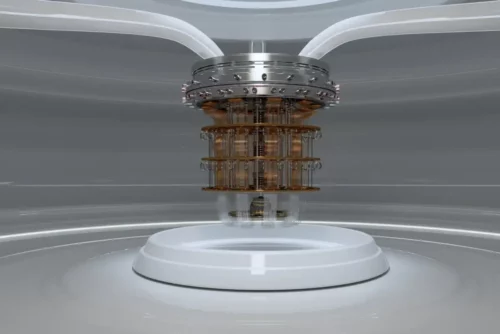Researchers advance towards large-scale quantum computing as they demonstrate error correction in a three-qubit silicon-based quantum computing device.
Quantum computing is a rapidly-emerging field of technology that harnesses the laws of quantum mechanics to solve problems too complex for classical computers. It transmit information via qubits. Qubits, or Quantum Bits are the basic unit of information in quantum computing. They can be 0 or 1, as well as any part of 0 and 1 in superposition of both states. The qubit’s ability to remain in superposition is the heart of quantum’s potential for exponentially greater computational power.

What are qubits made from? The answer depends on the architecture of quantum systems. They can be made from trapped ions, photons, artificial or real atoms or quasiparticles, while binary bits are often silicon-based chips. Though, silicon-based quantum technology has started being developed. This offers an advantage like nanostructure capable of embedding billions of transistors in a compact chip.
But the problem that appears while using silicon-based technology is that there is no room for error-correction. Scientists have demonstrated the logical operation on the quantum state of two-qubits, but that is not enough for error-correction. This error-correction concept utilizes a three-qubit system.
A team of researchers at the RIKEN Center for Emergent Matter Science and the RIKEN Center for Quantum Computing, have achieved full control of a three-qubit system (one of the largest qubit systems in silicon), thus providing a prototype for the first time of quantum error correction in silicon.
“The idea of implementing a quantum error-correcting code in quantum dots was proposed about a decade ago, so it is not an entirely new concept, but a series of improvements in materials, device fabrication, and measurement techniques allowed us to succeed in this endeavor,” said Kenta Takeda, the first author of the paper.
Researchers plan to scale up the system by working with industries that can manufacture silicon-based quantum devices on a large scale.






